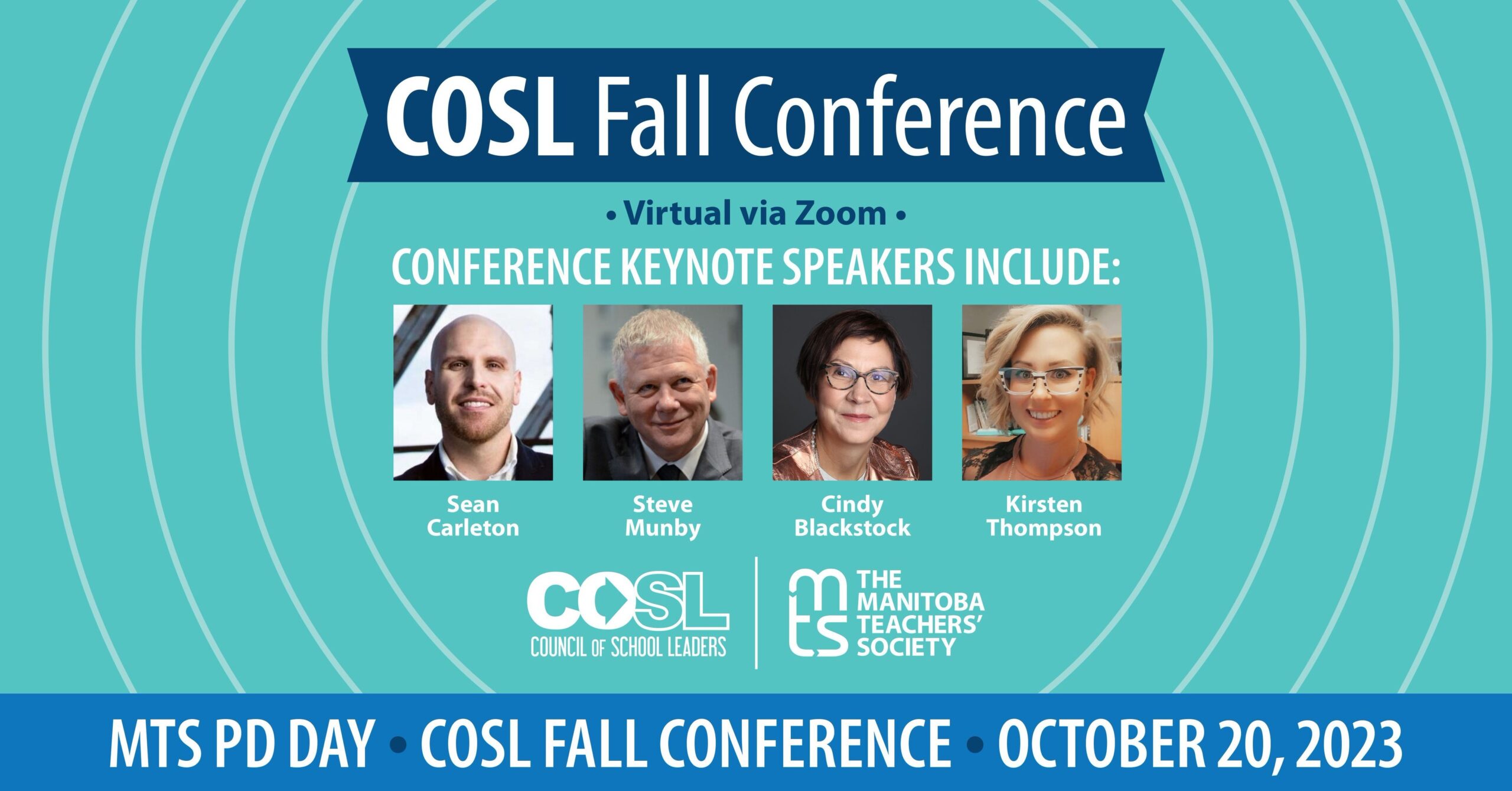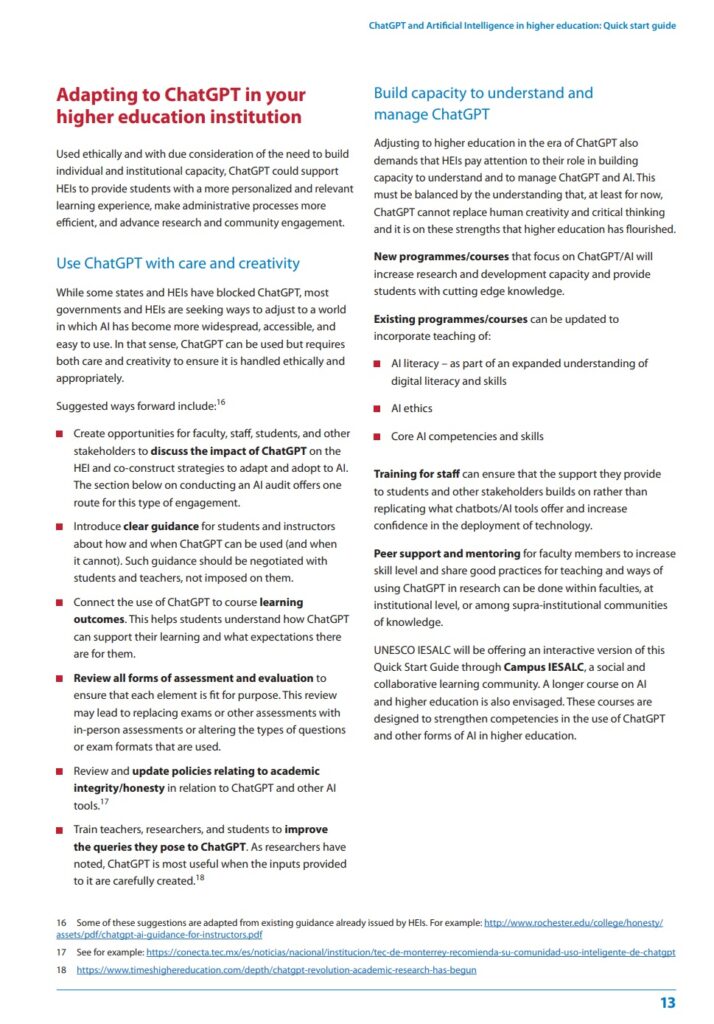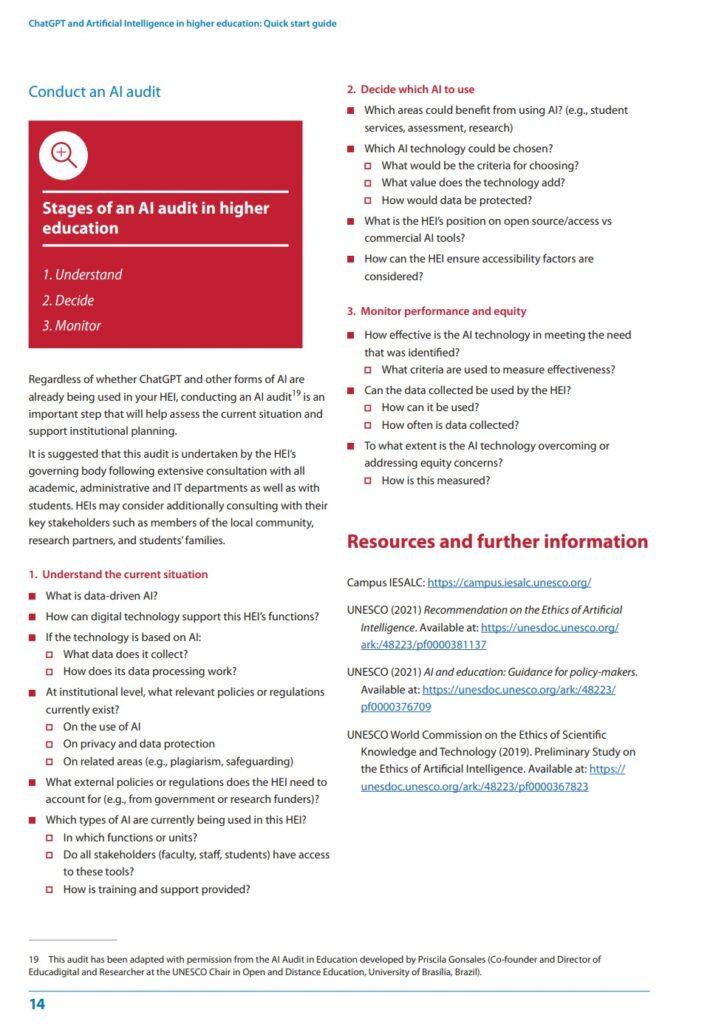AI In The Classroom – COSL – MTS PD Day

Today I had an opportunity to learn and share alongside the Council of School Leaders as part of #MTSPDDay.
The following is a curated list of resources to support our discussion.
Introduce Yourself to Artificial Intelligence
AI In The Classroom - Fall 2023 - COSL by Kirsten Cali
The above video is a TED Talk parody designed by using AI content creation tools. Full details on how this was created is explained HERE.
- John Spencer, creator of the above video, has a trove of AI information available across their platforms. Some notable pieces I have found valuable include:
- The Future of Writing in a World of Artificial Intelligence #ChatGPT
- We Can’t Predict How A.I. Will Change Learning #ChatGPT
- In a World of AI, Our Students Need Project-Based Learning
- No, Artificial Intelligence Won’t Destroy High School English (Or Any Other Subject)
- 5 Ways to Leverage AI for Student Supports & Scaffolds
Let’s Talk About AI in Teaching and Learning
- On January 13, 2023, the Centre for Teaching & Learning (University of Regina) offered a session on the topic of Artificial Intelligence (AI) in teaching & learning. The slides and key resources from Dr. Alec Couros are available at the above link.
All of the blog posts I’ve wrote that are tagged under the category of AI are available for review HERE.
Accessible Professional Development on AI
While we are optimistic about the potential of AI, we recognize that advanced technologies can raise important challenges that must be addressed clearly, thoughtfully, and affirmatively. These AI Principles describe our commitment to developing technology responsibly and work to establish specific application areas we will not pursue.
https://ai.google/responsibility/principles/
LEARNING OBJECTIVES
- Explain the concepts around AI programming
- Describe how AI is used in industry and daily life
- Explain the basics of Python programming
- Identify how Minecraft: Education Edition and Hour of Code introduce AI
This learning path introduces the fundamentals of artificial intelligence and how it’s applied in everyday life. AI already plays an integral part of our lives whether we realize it or not. With simple actions such as searching for websites or getting online help, we’re engaging with an AI component in the background. Learning more about AI helps students develop their knowledge and understanding of what the components of AI are and grasp how it all comes together. Learning about AI also enables students to make use of AI tools in their programming and provide them with opportunities to learn more about this fast-growing area that will dominate how we work in years to come. Finally, studying AI helps students appreciate a journey they can undertake to consider working in this area in the future.
Empower Educators to Explore the Potential of AI – Microsoft PD
LEARNING OBJECTIVES
- Describe generative AI in the broader context of AI in terms of how these systems work and what they can do.
- Explain what a large language model (LLM) is and the basics of how it works.
- Use generative and summative capabilities of LLMs (generate text, expand from main points, condense into main points, answer questions based on given text, etc.).
- Summarize potential impacts.
- Explain how AI can be used to improve learning outcomes, reduce educator workload, and increase learner engagement.
- Explain how the use of AI can help learning be more accessible and inclusive.
Upon completion of this module, you’ll be able to:
Navigate AI in education by looking at essential AI concepts, techniques, and tools, highlighting practical applications. AI can support personalized learning, automate daily tasks, and provide insights for data-driven decision making.

#etmooc2: “Generative AI in Education” is an experience that delves into the rapidly evolving world of generative artificial intelligence and its potentially transformative disruptive impact on lifelong learning and education. The mini-mooc offers a multidisciplinary approach to understanding the potential, implications, and ethical considerations of generative AI, with the goal of exploring knowledge and skills to harness the power of AI in reshaping education and fostering human-centric conversations.
https://sites.google.com/view/etmooc-two/home?authuser=0
Topics include:
- Chat GPT and Its Implications for Lifelong Learning
- AI and You: Ethics, Equity, and Accessibility
- How is Generative AI Transforming and Disrupting Your Learning and Teaching?
- AI and You : Bringing Humanity Into The Conversation
- Open list of AI Resources
AI and Your School/Divisional Programming
UNESCO ChatGPT and Artificial Intelligence in Higher Education
- 15pg document
- Branded specifically with the vocabulary, ChatGPT and Higher Education, but the foundational information is solid and can easily be replaced by the general terms of, AI and education
- The following two pages are specially helpful when organizing school discussions and supporting staff with AI tool selection


Canadian Government – Guide on the Use of Generative AI
- applies to the federal government and is designed to guide the ethical use of AI tools
- could be useful when evaluating AI at micro-levels as well
AI Guidance for Schools Toolkit
This toolkit is designed to help local, state, and national education systems worldwide develop guidance on the responsible use of AI, ensure compliance with relevant policies, and build the capacity of all stakeholders to understand AI and use AI effectively. The recommendations in this toolkit may also inform the early stages of developing policies and procedures, whether mandatory or voluntary.
https://docs.google.com/document/d/1OmT-6Nf_B9f8yA6r54QQ-DMSB85njo5JZ6qyR17jFgA/edit
BLOG POST – Assessment in the Age of AI
Copy of The English Teacher's Guide to AI 2023 by Kirsten Cali
AI Tools To Try Today
Strategic Module Assistant for Rubrics, Tasks, and Inclusive Education
- SMARTIE is a sophisticated suite of web-based applications, utilizing the power of the ChatGPT API and Claude API. It’s specially developed to assist university-level educators in creating comprehensive and inclusive course outlines. This flexible tool allows educators to generate various course components such as descriptions, learning outcomes, corresponding EDIA-aware (Equity, Diversity, Inclusion, and Accessibility) learning activities, and even procure recommendations for rubric redesigns.
Chat GPT – Teaching with AI Guide
a guide for teachers using ChatGPT in their classroom—including suggested prompts, an explanation of how ChatGPT works and its limitations, the efficacy of AI detectors, and bias.
https://openai.com/blog/teaching-with-ai
Google – The New Era AI
- See whats coming for Google divisions
Bing AI
- Bing, being a Microsoft tool, lends itself naturally for use in Microsoft divisions
Canva – Magic (AI) Tools
- Canva, is a graphic design software that all educators can access PRO for FREE, has a variety of AI-enabled tools labeled “magic”
- This YouTube playlist highlights some of these tools